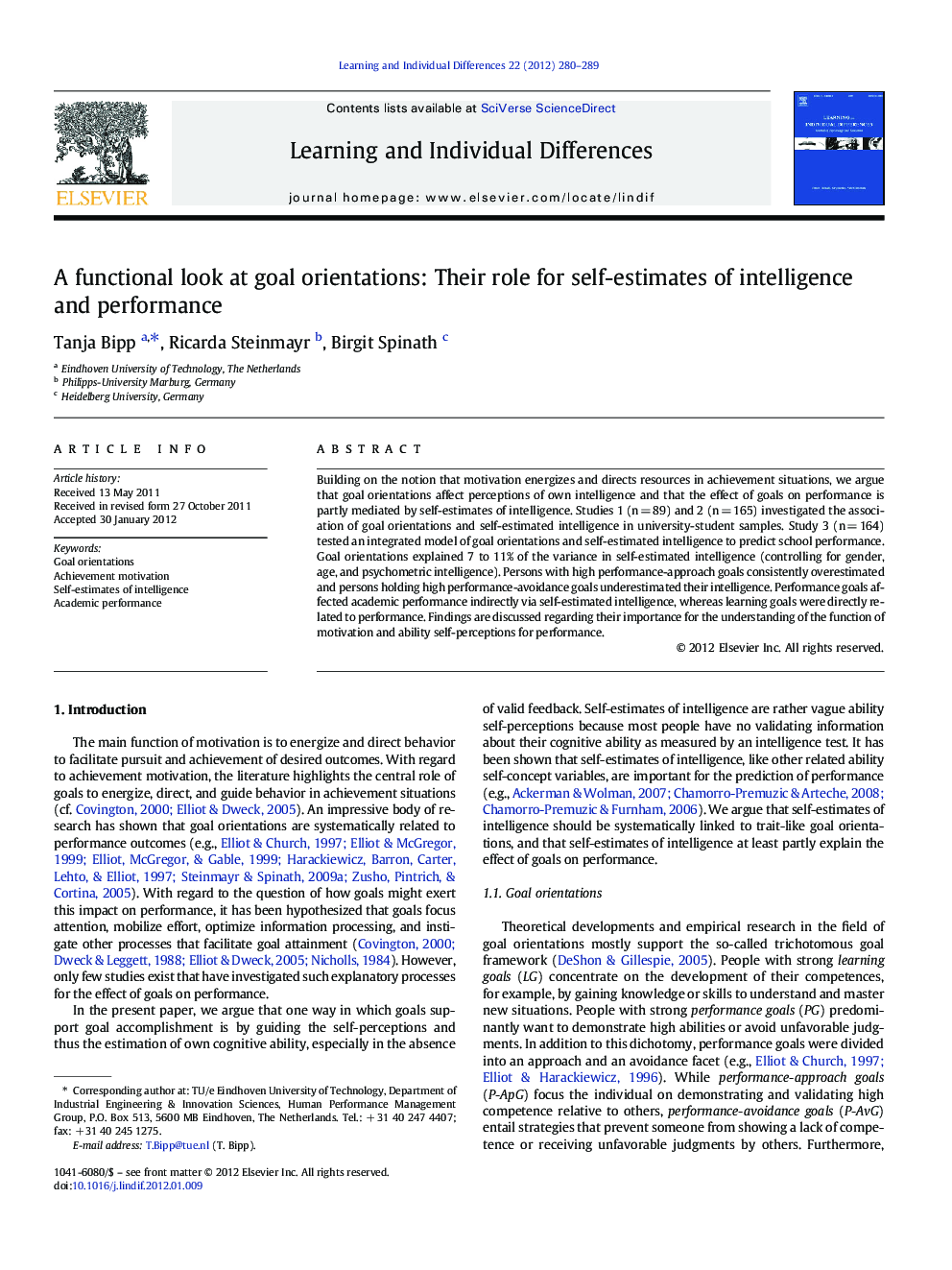| Article ID | Journal | Published Year | Pages | File Type |
|---|---|---|---|---|
| 365173 | Learning and Individual Differences | 2012 | 10 Pages |
Building on the notion that motivation energizes and directs resources in achievement situations, we argue that goal orientations affect perceptions of own intelligence and that the effect of goals on performance is partly mediated by self-estimates of intelligence. Studies 1 (n = 89) and 2 (n = 165) investigated the association of goal orientations and self-estimated intelligence in university-student samples. Study 3 (n = 164) tested an integrated model of goal orientations and self-estimated intelligence to predict school performance. Goal orientations explained 7 to 11% of the variance in self-estimated intelligence (controlling for gender, age, and psychometric intelligence). Persons with high performance-approach goals consistently overestimated and persons holding high performance-avoidance goals underestimated their intelligence. Performance goals affected academic performance indirectly via self-estimated intelligence, whereas learning goals were directly related to performance. Findings are discussed regarding their importance for the understanding of the function of motivation and ability self-perceptions for performance.
► Examined effect of motivation and ability self-estimations on performance. ► Goal orientations explained 7-11% of the variance in self-estimated intelligence. ► Persons with high performance-approach goals overestimated their intelligence. ► Persons with high performance-avoidance goals underestimated their intelligence. ► Performance goals influenced performance indirectly via ability self-estimations.
